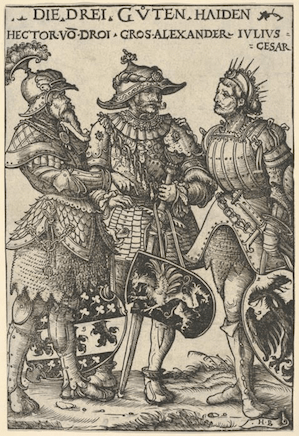Hymn to Apollo 331-342
By Tim Hampshire
In this passage, Lines 331-342 of the Hymn to Apollo, Hera makes an appeal to the Gaia and Ouranos, along with the Titans, to be granted the ability to bear a child on her own. The child ends up being Typhon.
In the Bryn Mawr commentary, there is a note for χειρὶ καταπρηνεῖ indicating that such a gesture often describes appeals to chthonic beings. When I read it that way, her prayer to the primordial gods of the earth feels dark and ghoulish in a way that I am not used to thinking of her…


